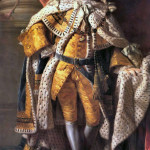Six Inventions That Changed History
Inventions created throughout history made life easier for people, ushered in new technology, and sometimes made life more fun, such as when Richard Jones invented the Slinky. Some inventions were short-lived while others changed the world.
Life-Changing Inventions
These six inventions are some of the ones that changed history.
1. The Telegraph
When Samuel Morse invented the first workable telegraph, the technology allowed for faster delivery of messages. Morse was the only person in the U.S. to gain political support and backing for his invention. The telegraph also used his Morse code system.
As the popularity of the telegraph slowly grew, companies such as Western Union began creating their own telegraph systems. The Elon University School of Communications points out that Western Union grew by 11,000 percent within 10 years. However, inventions such as telephones and radios eventually deemed the use of the telegraph obsolete.
2. The Wheel
When created in approximately 3500 BC, its use as a means of transporting people and goods became critical to everyday life. Live Science explains that wheeled carts made getting goods to market much easier and lessened the burden for people traveling longer distances.
However, it is the combined concept of the wheel and axle that changed lives, maintaining its critical importance over time.
3. The Printing Press
The invention of the printing press revolutionized the printing process, making speed less of a problem when printing books or other printed works. Johannes Gutenberg created and utilized a molding technique that allowed for large numbers of movable type. Using his printing press, Gutenberg successfully transferred ink from the movable type of the printing press onto paper.
The printing press enabled more people to obtain books and at lower prices. This allowed for greater knowledge and permitted the spread of controversial ideas. Several sources indicate that the printing press led to the Protestant Reformation, for example.
The most popular book became available to a wider audience. Obtaining a copy of the Gutenberg Bible is likely now highly sought after by some collectors.
4. Computer Software
Women invented the pacemaker and the car heater. Actress Hedy Lamarr created the secret communications system that the U.S. used during WWII that allowed for radio control of torpedoes. Another technological advance invented by a woman came from Dr. Grace Murray Hopper.
Buzz Feed says that the rear admiral in the U.S. Navy, who was also a computer scientist, invented Common Business Oriented Language (COBOL), the first business computer software program deemed user-friendly. While COBOL is not an ideal technology today, people across the world likely use another of Dr. Hopper’s creations on a regular basis.
Dr. Grace also originally coined the term “bug” to describe a computer system glitch. She coined the term after a real bug, a moth, caused her to have computer problems.
5. The Compass
Created in China, the invention of the compass became a critical tool for explorers navigating the high seas. Sources vary as to when the Chinese invented the compass. Some sources indicate that the invention of the compass occurred as early as the ninth century while others list the invention of the compass as late as the 14th century.
The compass eventually made its way to the Arabs and Europeans, ushering in the Age of Discovery and allowing for an increase in sea trade.
6. Penicillin
Penicillin was an accidental invention by scientist Sir Alexander Fleming. Business Insider explains that after Fleming failed to create a new medication to cure diseases, he threw his experiments away.
He noticed that mold in a discarded Petrie dish dissolved all the bacteria around it. He subsequently grew the mold himself, successfully creating the most powerful disease-killing antibiotic the world had ever known. Death rates dropped dramatically after the accidental invention of penicillin.







